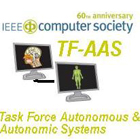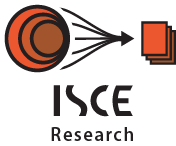First IEEE International Conference on Self-Adaptive and Self-Organizing Systems
Boston, Mass., USA, July 9-11, 2007
Keynote 1: 99% (Biological) Inspiration, by Michael G. Hinchey
Abstract
Greater understanding of biology in modern times has enabled significant breakthroughs in improving healthcare, quality of life, and eliminating many diseases and congenital illnesses. Simultaneously there is a move towards emulating nature and copying many of the wonders uncovered in biology, resulting in "biologically inspired" systems. Significant results have been reported in a wide range of areas, with systems inspired by nature enabling exploration, communication, and advances that were never dreamed possible just a few years ago. We warn, that as in many other fields of endeavor, we should be inspired by nature and biology, not engage in mimicry. We describe some results of biological inspiration that augur promise in terms of improving the safety and security of systems, and in developing self-managing systems that we hope will ultimately lead to self-governing systems. We concentrate on the concept of swarm-based exploration missions that will enable NASA to explore space more efficiently and collect data never before available to scientists. We discuss several new self-x properties that will make such missions possible and that will also have application in other areas.
Speaker's Biography
Mike Hinchey is Professor of Computer Science and Director of the Graduate Program at Loyola College, Baltimore, MD, USA. Until January 2007, he was Director of the NASA Software Engineering Laboratory, located at NASA Goddard Space Flight Center in Greenbelt, MD. He now serves as a NASA expert consultant. Prior to joining the US government, at various times he held positions at the level of full professor in the US, Australia, Sweden, Ireland and the UK. This summer he is Visiting Professor at Pontifícia Universidade Católica do Rio de Janeiro. He received a B.Sc. in Computer Science from University of Limerick, Ireland, an M.Sc. in Computation from University of Oxford, UK, and a Ph.D. in Computer Science from University of Cambridge, UK. He is Chair of the IEEE Technical Committee on Complexity in Computing, Vice Chair of the IEEE Technical Committee on Autonomous and Autonomic Systems, and is the IEEE Computer Society's representative to IFIP Technical Committee 1 (Foundations of Computer Science), which he currently chairs.










